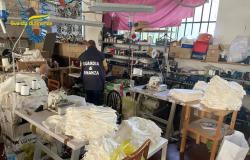It concluded in Prato, with the conference “Social agriculture, a resource for work inclusion. The experiences of the territories” of last February 16, the “ASAP” Project (Social Agriculture in the Prato area).
The project enjoyed the support of the Tuscany Region by adhering to the call to promote social agriculture actions in the regional territory.
Public allocations were aimed at supporting the diversification of agricultural activities by promoting health care, social integration and community support actions.
The general objective of the project was to promote the experience of social agriculture as a tool for inclusion through agricultural activity, fully embracing the idea of the multifunctionality of the agricultural enterprise, which can combine complementary and socially useful to the primary one.
In practice, the farms involved welcomed people suffering from various types of disabilities or discomfort for 6 months, allowing them to enrich their experiences by carrying out agricultural practices under the careful guidance of farmers and tutors.
The passion and commitment that the farmers who dedicated themselves to social agriculture put in was invaluable.
All the enthusiasm and difficulties are collected in short video testimonials where Giuliana Giuliani (Società Agricola Carrini e Giuliani), Lapo Somigli (Società Agricola Frigionaia) and Andrea Pini (Humanitas Società Cooperativa Sociale) talk about themselves and the relationship with the kids involved in the project. In their companies, 10 girls and boys with various intellectual or mental health disabilities reported by the Prato Area Health Society, also a partner of the project, were welcomed.
These young people were taught how to take care of a vegetable garden or olive trees (by Andrea and Lapo), or raise bees (by Lapo) or look after calves and horses (by Giuliana). Also important for them was the experience of doing these activities together and also of having moments of community such as breakfasts at Giuliana’s which proved to be valid additions to the agricultural activity.
The other partner of ASAP, the Cooperativa sociale Alice with the coordination of Francesca Drovandi, played an important role both for the matching of the subjects with the partner companies and for the essential contribution of the tutors made available to support the children involved in their interaction with companies and the daily activities carried out, following their difficulties and successes.
The work that made it possible to identify the disadvantaged subjects most suitable for inclusion in the project’s partner farms was long. Due to issues due to the pandemic, this matching lasted longer than the expected 6 months, but the Health Society and the Alice Social Cooperative have established a replicable and robust working methodology, applicable in new social agriculture projects.
The identification was based on an analysis of the company records that had previously been prepared. Specific training courses were therefore organized aimed at informing/training disadvantaged individuals on the main safety standards in the workplace with particular mention of the risks associated with agricultural activity and related work.
The long preparation of the placements, both in terms of selection and training of users, led to the achievement of over 90% of the paths, with a positive evaluation of the subjects involved and the host families.
But Asap was also about dissemination and knowledge of good social agriculture practices. In addition to the final event, 5 video interviews were also carried out, 1 online event to discuss the activities carried out and a handbook for the implementation of social agriculture projects.




